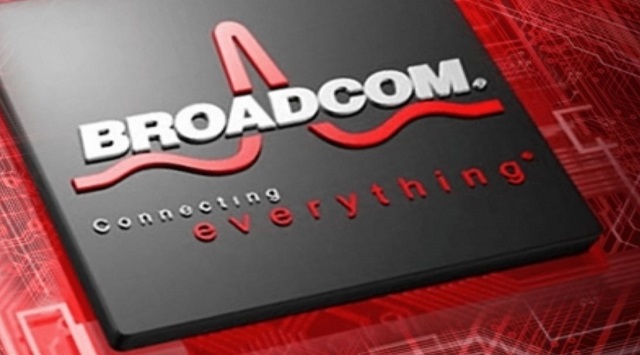Broadcom's VMware Acquisition: AT&T Highlights A Staggering 1,050% Cost Increase

Table of Contents
The VMware Acquisition: A Deep Dive into Broadcom's Strategy
Broadcom, a leading semiconductor and infrastructure software company, acquired VMware, a virtualization and cloud computing giant, for a massive sum. Broadcom's rationale behind this acquisition centers on expanding its enterprise software portfolio and strengthening its position in the cloud computing market. By integrating VMware's virtualization technology with its existing infrastructure solutions, Broadcom aims to offer a more comprehensive and integrated suite of products to its customers.
Post-acquisition, Broadcom's plans for VMware remain somewhat opaque, fueling uncertainty amongst existing customers. The biggest concern for many is the potential for substantial changes to pricing and licensing models. This uncertainty, coupled with Broadcom's history in the industry, raises significant questions about the future cost of VMware products and services. The market impact is already being felt, with competitors scrambling to adjust their strategies and customers grappling with potentially exorbitant price increases.
- Increased market share for Broadcom: The acquisition significantly expands Broadcom's reach and influence in the enterprise software market.
- Potential for increased integration between Broadcom and VMware products: This could lead to more efficient and streamlined solutions, but also raises concerns about vendor lock-in.
- Risk of reduced competition: The acquisition consolidates significant market power, potentially leading to less innovation and higher prices.
- Uncertainties about future product roadmaps: The lack of transparency around Broadcom's plans for VMware's future development is a major source of anxiety for customers.
AT&T's 1,050% Cost Increase: A Case Study in VMware Licensing
AT&T's experience serves as a stark warning for other VMware customers. Their reported 1,050% increase in licensing costs stems from a combination of factors, including changes in licensing agreements, updated pricing models, and potentially aggressive negotiation tactics by Broadcom. The exact details of AT&T's contract and the specific VMware products impacted haven't been publicly disclosed, but the magnitude of the increase is undeniably alarming.
This substantial cost increase will undoubtedly affect AT&T's IT budget and overall business strategy. It forces a critical reassessment of their technology investments and may necessitate exploring alternative solutions. The incident highlights the potential vulnerability of large organizations heavily reliant on VMware technology.
- Specific VMware products impacted: While not publicly specified, the scale of the increase suggests a broad impact across various VMware products.
- Breakdown of the 1,050% increase – what factors contributed? This likely involves a combination of new licensing terms, increased per-unit costs, and potentially renegotiated contracts under less favorable terms for AT&T.
- AT&T’s potential responses to the increased costs: Options range from renegotiating with Broadcom, exploring alternative virtualization technologies, or absorbing the costs, all impacting their bottom line.
- Analysis of AT&T’s negotiating power with Broadcom: Given Broadcom's market position, AT&T's negotiating leverage might have been limited, leading to the substantial increase.
Implications for Other VMware Customers: Preparing for Potential Price Hikes
AT&T's experience is not an isolated incident. Other VMware customers face the very real possibility of similar, albeit perhaps less dramatic, cost increases. The specific impact will depend on several factors, including the type of VMware licenses held, the volume of usage, and the terms of their existing contracts. Businesses with legacy licensing agreements or those using older versions of VMware software are particularly vulnerable.
The key to mitigating the risk of substantial cost increases lies in proactive planning and negotiation.
- Strategies for negotiating with Broadcom: Thorough contract review, leveraging market alternatives, and building strong negotiating positions are crucial.
- Alternatives to VMware products and services: Exploring competitors like Citrix, Nutanix, or open-source solutions is a prudent approach.
- Importance of proactive contract review and negotiation: Regularly reviewing contracts and proactively engaging in renegotiation before contracts expire can limit negative financial impact.
- Long-term planning for IT infrastructure costs: Developing a comprehensive IT budget that accounts for potential price fluctuations is vital for long-term stability.
Regulatory Scrutiny and Antitrust Concerns Surrounding the Broadcom-VMware Deal
The Broadcom-VMware deal is under intense regulatory scrutiny. Antitrust concerns center on the potential for reduced competition and market dominance by Broadcom. Regulatory bodies worldwide are evaluating the implications of the merger, particularly regarding its impact on pricing, innovation, and customer choice. The outcome of these reviews could significantly impact Broadcom's future pricing strategies and the overall competitiveness of the enterprise software market.
- Key regulatory bodies involved in the review: Agencies like the FTC in the US and equivalent bodies in Europe and other regions are actively reviewing the merger.
- Potential consequences of regulatory disapproval: The deal could be blocked, requiring Broadcom to divest VMware or significantly alter its integration plans.
- Impact on competition within the enterprise software market: A successful merger could lead to less competition, potentially resulting in higher prices and reduced innovation for customers.
Conclusion: Navigating the Post-Acquisition Landscape of Broadcom and VMware
Broadcom's acquisition of VMware presents a complex and evolving landscape for businesses. AT&T's 1,050% cost increase serves as a stark reminder of the potential financial ramifications. Proactive planning, thorough contract reviews, and a willingness to explore alternative solutions are crucial for mitigating the risk of significant VMware licensing cost increases stemming from Broadcom's price hikes and acquisition strategy. Don't wait for a surprise cost shock – review your VMware contracts today and prepare for the future of VMware licensing costs in the post-acquisition world. For more information on the Broadcom-VMware deal, consult resources from reputable market analysis firms. [Link to relevant resource here]

Featured Posts
-
 Fortnites Cowboy Bebop Skins How Much Does The Faye Valentine And Spike Spiegel Bundle Cost
May 03, 2025
Fortnites Cowboy Bebop Skins How Much Does The Faye Valentine And Spike Spiegel Bundle Cost
May 03, 2025 -
 Bbc Two Hd Newsround Tv Guide And Schedule
May 03, 2025
Bbc Two Hd Newsround Tv Guide And Schedule
May 03, 2025 -
 England Vs Spain Live Tv Channel Kick Off Time And How To Watch The Lionesses Tonight
May 03, 2025
England Vs Spain Live Tv Channel Kick Off Time And How To Watch The Lionesses Tonight
May 03, 2025 -
 Des Annees Plus Tard Emmanuel Macron Evoque Sa Vie Privee Avec Brigitte
May 03, 2025
Des Annees Plus Tard Emmanuel Macron Evoque Sa Vie Privee Avec Brigitte
May 03, 2025 -
 Watch England Vs Spain Live Tv Coverage Kick Off Time And Online Streaming
May 03, 2025
Watch England Vs Spain Live Tv Coverage Kick Off Time And Online Streaming
May 03, 2025
